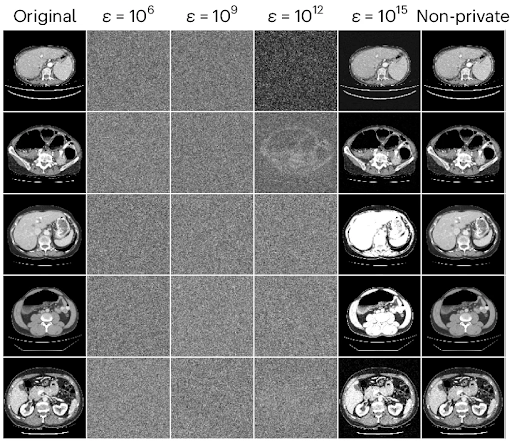As Medicare Advantage (MA) enrollment continues to surge, home health providers have seen slim margins deteriorate further. Some providers have openly expressed their decision to reject financially unsustainable MA contracts.
Abandoning unfavorable MA contracts may sometimes be necessary, industry executives told Home Health Care News. However, some providers have improved their MA standing by renegotiating rates or returning after walking away, leveraging data and understanding the needs of payer partners.
“We have walked away, in specific states, from payers and Medicare Advantage groups because of rates and the inability to raise those rates, and pre-authorization terms,” G. Scott Herman, CEO of New Day Healthcare, told HHCN.
Fairview, Texas-based New Day Healthcare has about 33 locations across Texas, Kansas, Illinois and Missouri. The company offers home-based care services, including home health care, personal care services and hospice. It serves nearly 150,000 patients annually.
MA enrollment has seen continued growth over the past two decades. As of 2024, 32.8 million people are enrolled in an MA plan, which represents 54% of the eligible Medicare population, according to data from KFF.
At New Day Healthcare, just north of 60% of the company’s home health business consists of patients enrolled in MA. The company has a combination of enterprise-wide agreements and state-specific agreements.
When to walk away
New Day Healthcare is not the only company that has made the decision to walk away from an unfavorable payer agreement.
The LTM Group CEO, David Kerns, views ending unfavorable MA relationships as zeroing in, versus walking away.
“You don’t have to be everything to everybody,” he told HHCN. “A lot of times, if you focus on everything, it’s hard to focus on anything. A lot of providers think, well, I have to be in a contract with everybody and do everything. That’s not necessarily true. Instead, focus on your best payer partnerships, and do something really spectacular with them.”
Dayton, Ohio-based, the LTM Group includes several home health, personal care, hospice and rehab companies with more than 500 employees across Indiana, Ohio and Michigan.
MA makes up 40% of the LTM Group’s business. Similar to New Day Healthcare, the company has a mix of national and regional contracts.
Renegotiating and coming back to the table
For Frontpoint Health, MA relationships have been the focal point of the company’s business.
CEO Brent Korte said that MA accounted for the vast majority of Frontpoint Health’s business, exceeding the typical MA concentration seen among similarly sized providers.
The company’s focus on MA has equipped Frontpoint Health with specialized expertise, Korte said. Ensuring that the plan recognizes the value that Frontpoint Health brings.
“If we ask for a rate increase,” he told HHCN. “Generally, Medicare Advantage plans have economists that are crunching the numbers and making sure that any investment in home health care is going to result in less costs elsewhere. We are meticulous about illustrating the finances and the economics of why, and how, our care decreases the costs.”
Backed by Cimarron Healthcare Capital and Tacoma Holdings, Frontpoint Health is a Dallas-based home health and hospice provider that delivers care across 176 counties in Texas.
Enhabit Inc. (NYSE: EHAB) has grabbed headlines for ending larger contracts that were unfavorable to the company, namely the termination of its contract with UnitedHealth Group’s (NYSE: UNH) UnitedHealthcare in August.
The company eventually formed a new home health agreement with the insurer.
One of CEO Barb Jacobsmeyer’s biggest takeaways from re-negotiating contracts with Medicare Advantage plans is the importance of data.
“Providers need to have their data to present,” she said in an email to HHCN. “That includes things like timely initiation of care, hospitalization rates and readmission rates — focusing on the metrics that have the greatest impact to the payer. If we are negotiating with a payer for the first time, we bring Medicare claims data to show these outcomes for Enhabit.”
Dallas-based Enhabit has 256 home health locations and 112 hospice locations across 34 states.
Jacobsmeyer also stressed the importance of finding out each MA plan’s particular pain points.
“Define your role in that solution,” she said. “If we are at a table renegotiating with a payer, we bring data regarding the volume of their members we have cared for and encourage the payer to show us how our outcomes compare to their other providers. We find that our most successful negotiations happen when we understand what the payer is looking for in a provider partner.”
Likewise, New Day Healthcare has also seen success focusing on the MA plans’ needs. Specifically, Herman has found that MA plans are looking for home-based care partners that can ensure beneficiaries receive care in a timely manner.
“When we meet those terms and we gain that volume, we can go back to those payers and say, ‘Listen, we’ve created these results,’” he said. ‘“We’ve created this amount of volume. We’re taking care of this many beneficiaries, and we need you to work with us in a reasonable way now.”’
When negotiating, hospital readmission rates have been a key data point for Frontpoint Health.
“Comparing our hospital readmission rate to the national average, and essentially expressing the savings that the insurance plan is getting based on how many hospital admissions we prevent — that’s one of the most salient ways to do it,” Korte said.
Korte noted that hospital readmission rates are important to MA plans because this is, typically, one of their largest expenses.
“[MA plans] are essentially cost control organizations,” he said. “They have a very simple revenue model and a very complex expense model. One of the largest line items on that expense model is hospital readmissions and hospital stays. Generally, those hospital admissions happen when patients are older, and have multiple chronic illnesses and co-morbid conditions — which is exactly when home health comes in.”
Ultimately, Kerns believes that leaders need to make sure they return to MA plans laser-focused and know their organization’s true cost.
“If you go into a negotiation and you’re trying to negotiate for a certain rate, but in reality you’re losing 30 or 40%, you may think that you’ve won, but really you’re not able to provide good care for that patient, and it’s not sustainable,” Kerns said. “Before you even come to the table, know where you need to be and stick with that.”
The post ‘We Need You To Work With Us’: Home Health Providers Renegotiate Better Medicare Advantage Deals appeared first on Home Health Care News.











